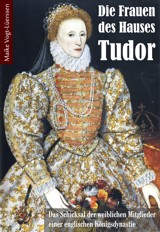"Philip the Third, King of Spain, son of Philip the Second, and of Anne of Austria, daughter of Maximilian II. Emperor of Germany, was in the 21st year of his age at his accession to the throne. He was a prince of a character extremely opposite of that of the late king, although no pains had been spared to form him to a similarity of manners. From the instructions delivered to those who had the charge of his education, it appears to have been a principal object of his father's attention, to inspire him with the same bigoted attachment to the superstition of the church of Rome, by which he himself had been actuated; and the means which he employed for this end, were attended with the desired success. But he was not equally successful in his endeavours to overcome that aversion which his son, from the natural indolence of his temper, early discovered to almost every species of manly exertion and activity. With this part of the young prince's character, Philip was well acquainted; and foresaw, with much anxiety, the unhappy consequences which it was likely to produce in his future reign. In order to introduce and habituate him to the management of public affairs, he formed a council of his ablest and most experienced ministers, who, in the presence of the prince, debated three times a week, concerning various important matters relating to the administration of the kingdom; and the prince was required to preside in this council, and to report the opinion of the majority to the king. But neither this, nor any other expedient which Loisa [García de Loaysa], the prince's faithful preceptor, could devise, proved effectual for the purpose for which it was intended. Inactivity or indolence still remained the most conspicuous feature in his character; and it early excited in the king, a strong and well grounded apprehension that his son, unable or unwilling himself to hold the reins of government, would surrender them into the hands of the marquis of Denia, or of some other favorite. Against this conduct, which is so commonly attended with the most pernicious consequences, Philip had often put the young prince upon his guard; and it was his last advice to him, which he delivered with great earnestness, a few hours before his death, that he should govern his kingdom by himself. He had likewise requested of him to employ, as his principal counsellors, Don Christopher de Moura, marquis of Castel Rodrigo, and Don Juan [de] Idiáquez; from whose experience, fidelity, and great abilities, he might derive the highest advantages, especially in the beginning of his reign. The soft and gentle temper of the prince had hitherto rendered him extremely obsequious to his father's will: but, conscious of his incapacity; and prompted by his indolence, he no sooner mounted the throne, than, disregarding the counsels which had been given to him, he resolved to avoid the perplexity which might attend his having recourse, on any occasion, to different counsellors, and therefore committed the whole administration of affairs to his favorite the marquis of Denia. The marquis del Castel Rodrigo, in whom Philip II. had long reposed the most perfect confidence, was honorably dismissed from court, and appointed viceroy of Portugal. Idiaquez had the presidency of the military orders conferred upon him; and being a less ambitious, and more complying temper than Castel Rodrigo, and willing to act in an inferior or subordinate capacity, he was suffered to remain, and occasionally consulted, on account of his long experience and the high character which he held for prudence and sagacity. But all power was lodged in the hands of the favorite, who, having been chief equerry to the king, before his accession to the throne, and having in that station had frequent access to his person, had gained his affections, and acquired an entire ascendant over him. He was instantly created duke of Lerma, and admitted into the council of state: after which, the king transmitted edicts to all the councils in the kingdom, requiring obedience to whatever orders should be communicated to them in his name by the duke." (in: Robert Watson: The History of the Reign of Philip the Third, King of Spain, Vol. 1, Dublin 1792, pp. 1-4).














